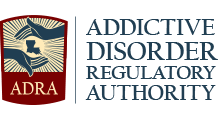Acadiana Treatment Center is a premier source of superior care for adolescents ages 12-17 who have been struggling with self-harm. Our self-harm treatment center in Sunset, Louisiana, provides adolescents with the comprehensive, personalized services that promote improved mental health and long-term progress.
Learn About Treatment for Self-Harm
Treatment for self-harm at Acadiana Treatment Center in Sunset, LA
The term self-harm can refer to a variety of behaviors that involve the intentional infliction of pain or damage on one’s own body. Examples of adolescent self-harm include cutting or burning one’s skin, pulling out one’s hair, punching oneself, and banging one’s head against a wall or other hard object.
In some cases, adolescent self-harm is a symptom of a mental health disorder. In other cases, it may be an unhealthy response to trauma, overwhelming stress, or perceived personal shortcomings. Regardless of the cause, adolescent self-harm is evidence that a young person is struggling and needs professional help.
Treatment for an adolescent who has been engaging in self-harm should be both comprehensive and personalized.
The comprehensive nature of effective treatment for adolescent self-harm reflects the understanding that self-harm is not a stand-alone problem. Whether the behavior is a maladaptive coping mechanism or a symptom of a mental health disorder, treatment for adolescent self-harm must identify and address all the challenges that the young person is experiencing.
Treatment for adolescent self-harm must also be personalized, because each young person has a unique history and possesses a specific set of strengths, needs, and goals. To be most beneficial, professional care for self-harm must identify these individual factors and incorporate them into each young person’s treatment experience.
At Acadiana Treatment Center, we conduct a thorough assessment and develop an individualized plan for each adolescent who receives care for self-harm with us. Thus, when you choose our adolescent self-harm treatment center in Sunset, Louisiana, you can rest assured that your child will receive the comprehensive, personalized care that will help them achieve true and lasting healing.
How to Help a Loved One
Helping your child get treatment for self-harm
Discovering that your child has been engaging in self-harm can be an extremely distressing experience. Adolescent self-harm is a serious concern that merits professional treatment. You can play a vital role in getting your child the care they need. Please consider the following:
Your first concern, of course, will be to ensure your child’s safety. Self-harm is not a suicide attempt; however, self-harm may put adolescents at increased risk for suicidal thoughts and behaviors. If you believe that your child is in imminent danger, call 911, contact the National Suicide Prevention Lifeline at 1-800-273-8255, or summon a local emergency first responder.
Once you’ve determined that your child is not in immediate danger, talk to them about the problem. This may not be an easy conversation, but it is essential. Share your concerns and emphasize your love and support. Perhaps most importantly, listen. Your child’s willingness or hesitance to discuss their struggles with self-harm can guide your next steps.
Be prepared for your child to respond with denials or even anger. Remember that adolescents who are engaging in self-harm are experiencing some form of emotional turmoil. Don’t allow the conversation to devolve into an argument. Don’t make accusations or issue ultimatums. Remain focused on the fact that your child is in pain and you need to find the solution that’s right for them.
Do not fear that having this discussion will increase your child’s risk. Open and honest discussions about mental health, self-harm, and suicide do not put adolescents in danger. If anything, your willingness to approach this topic with love, concern, and compassion will demonstrate to your child how much you care about them. It will also let them know that they are not alone.
In addition to talking to your child, you may also want to consult with experts and visit reputable websites to educate yourself about adolescent self-harm and learn about treatment options. When you’ve identified local sources of effective treatment for adolescents who have been engaging in self-harm, contact the programs that appear to be the best fit for your child. Any adolescent self-harm treatment program should be happy to answer all your questions, allow you to visit the facility, and otherwise provide you with the information you need.
Once your child has begun to receive treatment for self-harm, take advantage of any opportunities to participate in family therapy, parent education, or other family support services. Doing so can help you process how you’ve been impacted by your child’s struggles and will also prepare you to provide the most meaningful support during and after your child’s time in treatment for self-harm.
Why Consider Treatment
Why consider getting treatment for self-harm at Acadiana Treatment Center in Sunset, LA
Adolescents who need, but do not receive, effective treatment for self-harm may be at risk for a wide range of negative outcomes.
First, self-harming behaviors can put adolescents in danger for considerable physical harm. Adolescent self-harm can lead to broken bones, infections, cognitive impairments, organ damage, and a host of additional medical problems. The compulsion to hide the effects of their self-harm means that adolescents who engage in this type of behavior may be less likely to seek any form of medical treatment, which can put them at even greater risk.
Adolescent self-harm is often associated with shame, guilt, low self-esteem, and poor self-image. Adolescent self-harm may also be a symptom of a mental health disorder. Failing to seek effective treatment for an adolescent who has been engaging in self-harm denies the young person the opportunity to receive treatment for their mental health disorder or emotional struggles.
Adolescents who harm themselves may withdraw from friends or family members, which means they have reduced access to vital support. The cumulative impact of these various negative outcomes can lead to problems at home, in school, at work, and within their interpersonal relationships.
But your child’s life doesn’t have to turn out this way. When your child receives comprehensive, personalized treatment for self-harm at Acadiana Treatment Center, they can avoid or begin to heal from the negative effects described in this section. With our help, your child can overcome the urge to engage in self-harm. Treatment for adolescents who have been harming themselves can be a vital first step on the path to better mental health and improved quality of life.
Types of Self-Harm Treatment Offered at Acadiana Treatment Center
Learn about the therapies used in the treatment of self-harm at Acadiana Treatment Center in Sunset, LA
At Acadiana Treatment Center, each adolescent who receives care for self-harm follows a personalized treatment plan. We develop these plans following a thorough assessment of each young person’s strengths, needs, and goals. Our focus on customized care means that no two young people will have identical experiences at our self-harm treatment center in Sunset, Louisiana.
The members of your child’s treatment team will monitor their progress throughout their time with us and revise their plan as necessary to ensure that they’re receiving maximum benefit from our therapies and other services.
Depending on a host of individual factors, your child’s personalized self-harm treatment plan at Acadiana Treatment Center may include the following elements:
Medical care: The Acadiana Treatment Center staff includes a medical doctor and a nurse practitioner. These experienced professionals are available to provide basic medical care for adolescents who are receiving treatment with us for self-harm and other mental health challenges. Adolescents typically meet with a member of our medical staff on a weekly basis, with additional meetings available as needed. If your child develops a complex medical condition during their time with us, they will be referred to the most appropriate healthcare provider in the Sunset, Louisiana, area.
Medication management services: Certain prescription medications can help adolescents who have been struggling with self-harm. If your child can benefit from this type of care, we can include medication management services in their personalized treatment plan. As is the case with all elements of your child’s care, you will be consulted and kept up to date on all medication-related decisions throughout your child’s time in treatment for self-harm at our center in Sunset, Louisiana.
Individual therapy: All adolescents who are receiving care for self-harm at Acadiana Treatment Center participate in regularly scheduled individual therapy sessions. These one-on-one meetings with a master’s-level therapist are excellent opportunities for adolescents to process their experiences at our center, address topics they may be hesitant to bring up in a group setting, and receive focused feedback from a member of their treatment team.
Adolescents typically take part in two individual therapy sessions per week throughout their time in treatment for self-harm, and they may schedule additional sessions as needed.
Family therapy: At Acadiana Treatment Center, we understand how the entire family can be affected when an adolescent struggles with self-harm. We also appreciate the vital role parents and other caregivers can play during and after a young person’s time in residential treatment for self-harm. For these reasons, we provide family therapy on a regular basis, typically once per week. Depending on what’s best for you, family therapy sessions may be held in person or via a conference call. All family therapy sessions at our treatment center in Sunset, Louisiana, are led by a master’s-level therapist.
Group therapy: At Acadiana Treatment Center, groups are an essential component of residential care for adolescents who have been dealing with self-harm. Groups are structured and supportive forums where young people can gain insights into important topics related to self-harm treatment and recovery, learn from the experiences of other adolescents who have had similar struggles, and share their own thoughts and feelings.
Adolescents who are receiving treatment for self-harm typically participate in two psychotherapy groups each week. These groups, which are led by a master’s-level therapist, are based on the cognitive behavioral therapy (CBT) model, with elements of dialectical behavior therapy (DBT) and other models incorporated as needed.
In addition to these psychotherapy groups, we also offer an array of educational groups on a variety of topics, such as the following:
- Health promotion and self-care
- Relaxation and anxiety management
- Independent living skills
- Coping skills
- Anger management
- Social skills
- Making decisions
- Setting goals
- Conflict resolution
- Substance abuse prevention
- Healthy recreation
Experiential therapy: Experiential therapy can be a valuable complement to traditional individual and group therapy for adolescents who are receiving residential treatment for self-harm. Various forms of experiential therapy can help adolescents process their experiences, express their emotions, and view their challenges from a new perspective.
During your child’s time at Acadiana Treatment Center, they may participate in a variety of experiential therapies, including art therapy, music therapy, other expressive activities, movement therapy, games, and play therapy. Activity-based therapeutic opportunities are incorporated into our daily schedule. We also typically offer at least one supervised outing each week.
Continuing Care After Residential Treatment for Self-Harm
Continuing care options for self-harm treatment
Residential care for self-harm at Acadiana Treatment Center can be an essential part of an adolescent’s path toward improved mental health. However, we understand that your child’s recovery will continue long after their time with us has concluded.
To ensure that your child is best prepared to maintain and build on the progress they make with us, we will provide you with a detailed discharge plan prior to the end of your child’s time at our self-harm treatment center in Sunset, Louisiana. As with all elements of the residential experience at Acadiana Treatment Center, this plan will be customized to reflect and address your child’s unique strengths, needs, and goals.
Some adolescents can benefit from structured step-down support after they complete our residential treatment program for self-harm. If your child needs this type of follow-on care, their discharge plan can include a referral to a partial hospitalization program (PHP) or intensive outpatient program (IOP). The discharge plan may also include a referral to a trusted provider of traditional outpatient services in your area, if we determine that this type of continuing care is in your child’s best interests.
The discharge plan may also include information about peer support groups, family support services, self-harm advocacy organizations, or any other resources that will be of value to your child and your family in the weeks, months, and years to come.
For additional details about our discharge planning process, to learn more about continuing care for self-harm, or for answers to any other questions you may have about any aspect of self-harm treatment at Acadiana Treatment Center, please contact us at your convenience. A member of our team is available 24/7 to provide you with the information you need so that you can make the best decisions for your child and your family.












